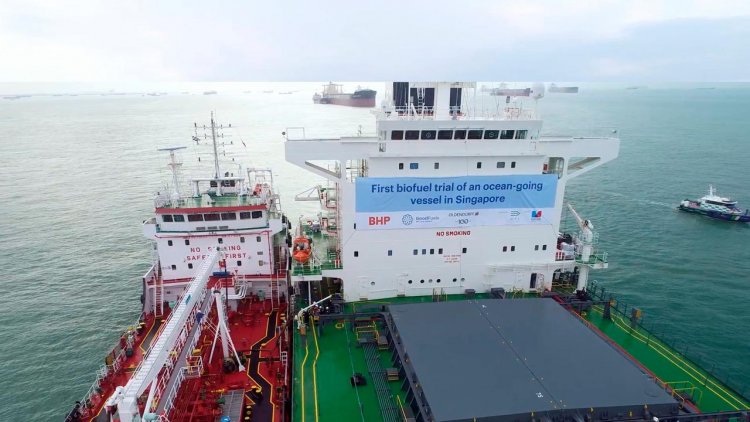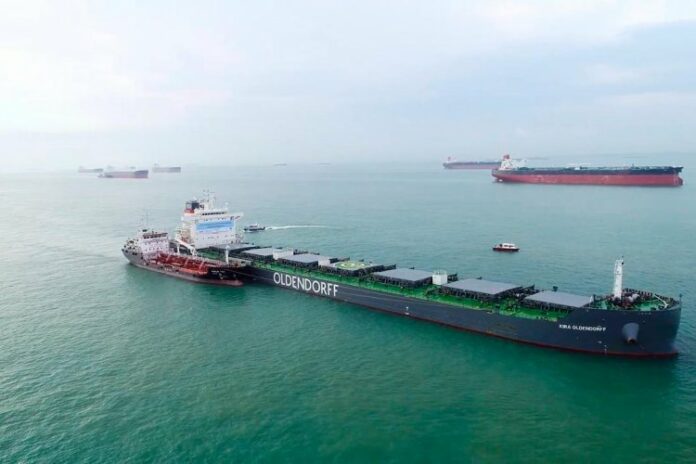Oldendorff Carriers, together with global resources company BHP, advanced biofuels pioneer GoodFuels (GF) and with the support of the Maritime and Port Authority of Singapore (MPA), has successfully conducted the first marine biofuel trial involving an ocean-going vessel bunkered in Singapore.
The vessel selected for the biofuel trial was one of the company’s eco-Kamsarmaxes, Kira Oldendorff. The 2020-built 81,290 tdw dry bulk carrier was bunkered with “drop-in” advanced biofuel to be blended with conventional fossil fuels. Minor modifications were carried out to burn the biofuel blend efficiently, and monitoring instruments were installed to capture the trial data as accurately as possible.
In line with our decarbonisation strategy, the company is committed to work with partners, authorities and stakeholders to find the best ways to reduce GHG emissions in our shipping operations. The key objectives of the biofuel bunkering trial include safety, understanding the behaviour of the fuel (such as emissions), assessing engine and vessel operational performance, as well as exploring the merits and challenges of biofuels as a marine fuel.
Oldendorff Carriers Singapore’s Managing Director, Alexander Vajsova-Jones stressed the importance of collaborating with the right partners:
“Oldendorff Carriers and BHP’s views on a greener future are mutually aligned and being historically close partners, it made this trial a natural fit. GF are leaders in biofuels and early movers in this segment and felt they were an excellent choice, while MPA are strong supporters of green initiatives and are always instrumental in supporting industry participants in the ‘shipping capital of the world’.”
Alexander Vajsova-Jones added:
“We are thrilled to have been selected to participate in this biofuel trial with our close partners, and pleased that the bunkering happened in Singapore. It’s a small but necessary step in our common goal to reduce our carbon footprint.”




